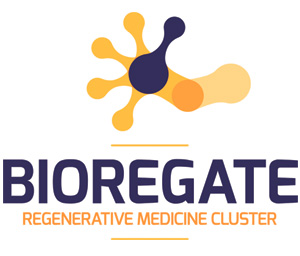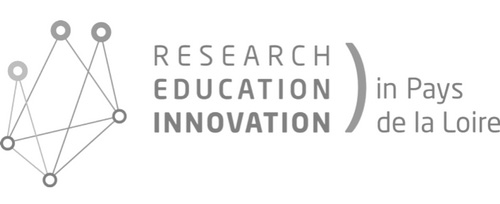Organization activities
The Institute of Materials was created in 1988 by the renowned French chemist Jean Rouxel. Drawing together chemists, physicists and materials engineers from the CNRS and the University of Nantes, with over 150 researchers and support staff it now represents one of the largest materials research centres in France. Research projects are diverse, including collaborations with industry, and other national and international research organisations.
At the IMN we develop a fundamental understanding of the science of materials and their properties from the atomic scale upwards. This allows the design, characterisation and optimisation of new materials for a diverse range of high technology applications, including next generation solar cells, fuel cells, electric car batteries, nanotechnology, smart materials, materials for microelectronics, photonic and optical materials.
5 research groups:
- Physics of materials and nanostructures (PMN)
- Plasma processes and thin films (PCM)
- Electrochemical storage and conversion of energy (ST2E)
- Innovative materials for optics, photovoltaic and storage (MIOPS)
- Material engineering and metallurgy (ID2M)
Research groups linked to current Bioregate projects
PMN group: “Physics of materials and nanostructures”
The PMN group (physics of materials and nanostructures) brings together solid state physicists and materials chemists around three themes:
- Nanocarbon: A central research theme covering the production of carbon nanostructures (nanowires, nanoparticles), their manipulation and control (isolated individual nanoobjects, nanocomposites), theoretical and experimental study of their structural and physical properties, and potential applications.
- Physical Chemistry of Interfaces: This research theme concerns the understanding and study of interface properties at the nanoscale, and changes in material behavior in the presence of interfaces at this scale. Our research areas include confined ionic liquids, oxide nanoparticles, and bio-systems with nanometer scale structure.
- Complex materials with non-conventional electronic properties: The production and study of complex materials with remarkable electronic properties, such as insulator-metal transitions (resistive transitions, Mott Insulators, and RRAM applications), induced by electric field for example.
We have expertise at the nanoscale in
- optical and vibrational spectroscopy – AFM microscopy
- atomic scale modelling of physical properties
- transport and magnetotransport
- physical chemistry in confined environments and at interfaces
- exploratory synthesis – nanostructure assembly
Techniques
- Raman Diffusion and IR Absorption spectroscopy
- Electric transport measurement techniques
- Near field microscopy and atomic force microscopy
- Nanostructure characterisation (Zeta potential, DLS)
- DFT and MD modelling (AIMPRO, SIESTA, LAMMPS, DFTB+).
We often develop new and original tools specific to the problem being studied.
Team leader
Bernard Hubert – bernard.humbert@cnrs-imn.fr
Other contact linked to Bioregate developments: Jean Le Bideau – jean.lebideau@cnrs-imn.fr
More details on the PMN group activities: https://www.cnrs-imn.fr/index.php/en/scientific-groups/physics-of-materials-and-nanostructures-pmn-group
ID2M
The research activities of the ID2M group focus on:
- the fabrication of new materials
- the chemical, structural, mechanical and thermal characterisation of materials
- the analysis of the material behaviour from the nano- to the macro-scale
Staff: 10 academic staff, 8 PhD students, 4 post-docs
Our approach is essentially experimental: it consists in improving the material properties by adjusting the fabrication process, and hence the microstructure. Our research can be fundamental or applicative. It is based on fundamental knowledge of materials, advanced characterisation methods and implementation of numerical simulation when needed.
These are the materials we deal with
- Metals and alloys
- Ceramics
- Natural materials
They can be
- Bulk materials
- Powders
- Thin or thick films
Our research is in close connection with the teaching activities at the University of Nantes (including Polytech Nantes)
- Welding,
- Metallurgy,
- Materials Engineering,
- Thermal Engineering,
- Technologies of Information and Communication
Our research activity is divided into three categories
- Degradation of materials, Metallurgy, Materials Engineering
- Metals
- Welding metallurgy
- Ceramics
- Materials for Thermal and Mechanical Engineering
- Coatings and Interfacial Materials
- Porous materials
- Diagnosis of Materials and Systems
- Materials and Environment
- Physics and Chemistry of Building Materials
- Environmental Impact of Materials and Infrastructures
List of equipments (non-exhaustive)
- Physical and chemical characterisation techniques:
- FEG SEM (+ EDX, WDX, EBSD, hot tensile stage),
- TEM
- XRD
- Micro XRF
- Auger Electron Spectroscopy (+ in-situ tensile apparatus)
- Zetametry
- Optical microscopy (+ 3D reconstruction)
- High speed camera
- High speed IR camera
- Solid state NMR
- XAS
- EXAFS-XANES
- AFM
Mechanical characterisation techniques
- Tensile / Compression / Bending tests (-196°C à 1100°C) + extensometer
- Fatigue testing (up to 1200°C),
- Creep testing
- Vickers Micro-Hardness measurement (+ automated mapping)
- Charpy impact test
Team leader
Pascal Paillard – pascal.paillard@cnrs-imn.fr
Other contact linked to Bioregate developments: Franck Tancret – franck.tancret@univ-nantes.fr
More details on the ID2M group activities: https://www.cnrs-imn.fr/index.php/en/scientific-groups/material-engineering-and-metallurgy-id2m-group

